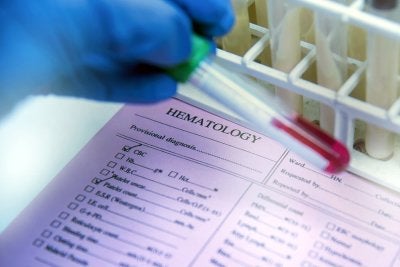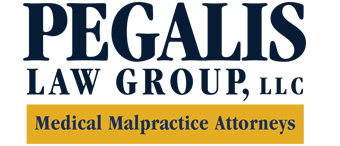-
Health Tests to Ask Your Doctor About
Getting the right screenings from your doctor when you need them is essential to staying healthy and protecting yourself from potential health problems. All too often, however, doctors don’t recommend the tests that their patients require. Here are some of the most important health tests you should be sure to ask about during your next visit to your doctor’s office.
Depression
If you’re showing any of the symptoms of depression, you should ask your doctor about getting a screening. Some of the most common signs of depression include a nagging feeling of hopelessness, lack of energy, poor appetite, and feeling little interest or excitement over activities that once brought you pleasure.Blood pressure
High blood pressure, or hypertension, can raise your chances of stroke, heart failure, and other serious health problems. If you are over the age of 20, you should have a blood pressure test performed at least once every two years. If repeated tests show that you have hypertension, your doctor can recommend a course of action to lower your blood pressure. Cholesterol
Cholesterol
Having high cholesterol levels can put you at greater risk of heart disease. Unfortunately, high cholesterol generally doesn’t present any symptoms, which makes routine testing more important. If you’re older than 35, you should have your cholesterol levels checked at least once every five years.Vitamin D deficiency
As many as three-fourths of all Americans may lack the vitamin D they need to keep their muscles and bones healthy. Individuals most at risk for vitamin D deficiency include people with osteoporosis, people who have celiac disease, and people who are obese. If you think you may be at higher risk of vitamin D deficiency, ask your doctor to test you.If you are concerned about a misdiagnosis or possible medical error contact the law firm of Pegalis & Erickson LLC in New York. For 45 years we have advocated for people of all ages, in order to help our clients financially and make healthcare safer for everyone. You can reach us today by calling (516) 684-2900.
-
Misdiagnosing Cerebral Palsy as Autism
Cerebral palsy and autism are different conditions that sometimes have similar symptoms. They both manifest early in life, they are both related to brain malfunction, and they both present some of the same symptoms. Because of this, cerebral palsy is frequently misdiagnosed as autism in young children. If your child has been diagnosed with autism but shows symptoms of cerebral palsy such as involuntary motions or low muscle tone, you should get a second opinion from a different physician. It’s also important to have an attorney you can look to for guidance if it turns out that your child was misdiagnosed at an early age.
 Pegalis & Erickson, LLC, represents parents of children who were misdiagnosed or otherwise let down by their medical providers. If you are concerned about a misdiagnosis or possible medical error contact the law firm of Pegalis & Erickson LLC in New York. For 45 years we have advocated for people of all ages, in order to help our clients financially and make healthcare safer for everyone. You can reach us today by calling (516) 684-2900.
Pegalis & Erickson, LLC, represents parents of children who were misdiagnosed or otherwise let down by their medical providers. If you are concerned about a misdiagnosis or possible medical error contact the law firm of Pegalis & Erickson LLC in New York. For 45 years we have advocated for people of all ages, in order to help our clients financially and make healthcare safer for everyone. You can reach us today by calling (516) 684-2900. -
National Minority Health Month
Unfortunately, not all Americans can count on receiving the same quality of medical care. April is National Minority Health Month, a time to familiarize oneself with the discrimination that minorities may experience in healthcare.
Findings from the National Healthcare Quality and Disparities Reports highlighted the discrepancy between the levels of care received by underserved groups such as minorities, those in rural areas, and the poor, in comparison to other people: African-American received worse medical care than Caucasians for about 40% of measures. Hispanics received worse care than non-Hispanic Caucasians for approximately 60% of measures, and Asians receive worse care for about 20% of measures. Those in poverty received worse care that high-income individuals for approximately 80% of measures.
 Further, according to recent research about minorities and medical care, many feel brushed off or condescended to by their healthcare providers. The results can be delayed diagnoses, worse prognoses, and evens death. If you belong to an underserved population group, it is all the more critical that you keep careful records of the treatment you receive from healthcare professionals. Take the initiative to ask for tests that are recommended for your age and condition.
Further, according to recent research about minorities and medical care, many feel brushed off or condescended to by their healthcare providers. The results can be delayed diagnoses, worse prognoses, and evens death. If you belong to an underserved population group, it is all the more critical that you keep careful records of the treatment you receive from healthcare professionals. Take the initiative to ask for tests that are recommended for your age and condition. If you are concerned about a diagnosis made later than it should have been, a misdiagnosis, or serious errors in medical treatment, contact the New York law firm Pegalis & Erickson, LLC. We advocate for people of all ages and backgrounds and help our clients successfully resolve their cases for financial support and to make healthcare safer for all. You can reach us today by calling (516) 684-2900.
-
Hospital Errors to Watch For
When you go to the hospital, it’s only natural to expect that you’ll be treated in a careful, competent, and professional way. Unfortunately, that isn’t always the case. If you’re treated improperly in a hospital setting, it can have serious effects on your health and well-being. You can do your part to protect yourself as a patient by watching for these common hospital errors :
Medication errors
If you are given the wrong medication—or the wrong dosage—in a hospital setting, the results can be deadly. Not only might your condition be worsened by not receiving the medication you need, but the medication you do get could have an adverse reaction. Make sure that you understand your medication instructions, and that you have all of your medication information with you at the hospital. Poor hand hygiene
Poor hand hygiene
The majority of hazardous germs and viruses are spread from person to person through their hands. It’s important for healthcare professionals to clean their hands using hand sanitizer or soap and water between treating each patient. Failure to observe this rule can result in pathogens being spread from one patient to another, resulting in needless sickness.False patient identification
As unbelievable as it may sound, it happens: A patient’s identity is not confirmed by the medical professionals providing treatment, and the patient receives the wrong treatment. Whether it means not getting the right treatment, being misdiagnosed, or even being subjected to needless treatment such as surgery, false patient identification is a serious issue. Always make sure that every staff member that treats you calls you by your name and checks your wristband.If you are concerned about a misdiagnosis or possible medical error, contact the law firm of Pegalis & Erickson LLC in New York. For 45 years we have advocated for people of all ages, in order to help our clients financially and make healthcare safer for everyone. You can reach us today by calling (516) 684-2900.
Recent Posts
Popular Posts
categories
- Uncategorized
- Infographic
- Patient Safety
- Patient Health
- Stillbirth
- Birth Injuries
- Medical Malpractice
- Medical Negligence
- Event
- Erb's Palsy
- Injury
- ER
- Video
- Cancer Misdiagnosis
- Medication Errors
- Cerebral Palsy
- Medical Negligence Lawyer
- Anesthesia Injuries
- Brachial Plexus
- Prostate Cancer
- About Us
- Men's Health
- Skin Cancer
- Breast Cancer
- Misdiagnosis
